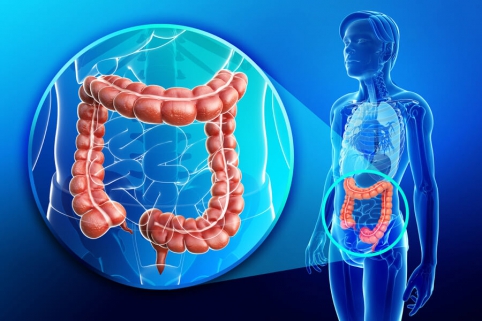Chronic constipation: Is your gut trying to tell you something?
Chronic constipation
Chronic constipation is a phenomenon that is seen quite often, especially in Western societies. There are several criteria by which constipation is defined, the most important of which are:
- Difficulty in voiding at least once in 4 stools
- Difficulty in passing stools at least once in every 4 stools
- Two or fewer stools per week for several weeks
- Feeling that the bowel movement is insufficient at least once in every 4 stools
Usually, constipation is a transient and mild symptom. However, when we are talking about chronic constipation, the symptoms are more intense and their impact on the quality of life of the person is more decisive.
How lifestyle and diet can cause constipation
If you suffer from constipation, it is likely that it is caused by your lifestyle and diet. Poor diet, lack of exercise and insufficient hydration are the most common and important causes of constipation. Therefore, before anything else, try to regulate these three factors.
Some things you can do immediately to help with the issue of constipation are:
- πLimit your consumption of dairy products, fatty meats and sausages
- Limit your consumption of processed foods and sugar
- Eat more fiber-rich foods
- Make sure you keep your body sufficiently hydrated
- Limit your consumption of alcohol and caffeine
- Start gentle exercise for at least 30 minutes every day
- Do not postpone your visit to the toilet
If you make all these changes and still have constipation problems, it is possible that your symptoms are caused by another condition. In particular, if the constipation is accompanied by other symptoms, such as vision problems, hair loss, fatigue, sudden weight changes, abdominal cramps, etc., then it is even more likely that you have another condition, and it is necessary to see your doctor immediately.
The most important of these possible conditions are:
1. Hypothyroidism
When your thyroid doesn’t produce enough hormones, it can have a drastic effect on your metabolism. A slow metabolism results in a slowing down of the entire digestive process, which leads to constipation.
Symptoms of hypothyroidism develop slowly over time and, in addition to constipation, may include:
- Fatigue
- Dry skin
- Increased sensitivity to cold
- Weight gain
- Irregular menstrual periods in women
- Thinning hair
- Brittle nails
- Impaired memory
- Swollen face
2. Diabetes
Like hypothyroidism, diabetes is also a hormonal problem. In diabetes, your body stops producing enough insulin, a hormone that allows the body to break down blood sugar.
The high blood sugar levels seen in type 1 and type 2 diabetes can lead to diabetic neuropathy or nerve damage. Damage to the nerves that control the digestive tract can lead to constipation.
It is imperative that diabetes is diagnosed as early as possible. The symptoms of diabetes will worsen if not treated. Along with constipation, watch out for other symptoms such as:
- Blurred vision
- Excessive and persistent thirst
- Frequent urination, especially at night
- Weight loss
- Fatigue
3. Irritable bowel syndrome
Constipation can be the result of a bowel disease known as irritable bowel syndrome. The exact cause of the syndrome is not yet clear, but it is thought to be the result of problems arising from the way the brain and the gut interact with each other.
In addition to constipation, other symptoms of irritable bowel syndrome include:
- Abdominal pain and cramping
- Excessive flatulence
- Bloating
- Occasional diarrhea (urgent)
- Presence of mucus in the stool
4. Stress
When you are anxious or stressed, your body goes into what psychologists call “fight or flight” mode.
Our autonomic nervous system is tasked with regulating our involuntary bodily functions (digestion, cardio respiratory activity, excretions, etc.). It consists of two parts, which counteract each other in order to maintain a balance: the sympathetic and parasympathetic nervous systems.
When we feel anxiety, stress, worry, the sympathetic nervous system is activated. With its activation, bodily functions such as digestion are put on hold.
If this state is maintained for a long time and the stress does not subside – also called generalized anxiety disorder – then the digestive process of the body is affected.
Other symptoms of generalized anxiety disorder include:
- Excessive anxiety
- Nervousness
- Insomnia
- Difficulty concentrating
- Irritability
5. Depression
People who suffer from depression quite often experience symptoms of constipation. The cause is not the depression itself but is due to changes in their lifestyle and diet due to depression. Most of the time these people reduce physical activity (they may stay in bed all day) and start eating more foods that are high in sugar and fat.
Other symptoms of depression are:
- Feelings of despair, worthlessness, hopelessness
- Suicidal thoughts
- Outbursts of anger
- Loss of interest in enjoyable activities
- Inability to concentrate
- Fatigue
- Reduced appetite
6. Pregnancy
Of course, pregnancy is not a medical condition. But it is included here among the causes that can cause constipation because it is common in pregnant women. It is estimated that at least 40% of pregnant women suffer from constipation during their pregnancy.
This is due to the fact that their body produces more of the hormone progesterone, which makes it difficult for the muscles of the bowel to contract.
Other conditions associated with chronic constipation
There are other conditions associated with constipation, such as:
- Hypercalcemia
- Multiple Sclerosis
- Parkinson’s disease
- Colon cancer
- Injury of the spine
- Stroke
- Bowel obstruction
- Low potassium (hypokalemia)
- Rectocele
- Prolapse of the Rectum
Some of these conditions are very serious and require immediate medical attention.

